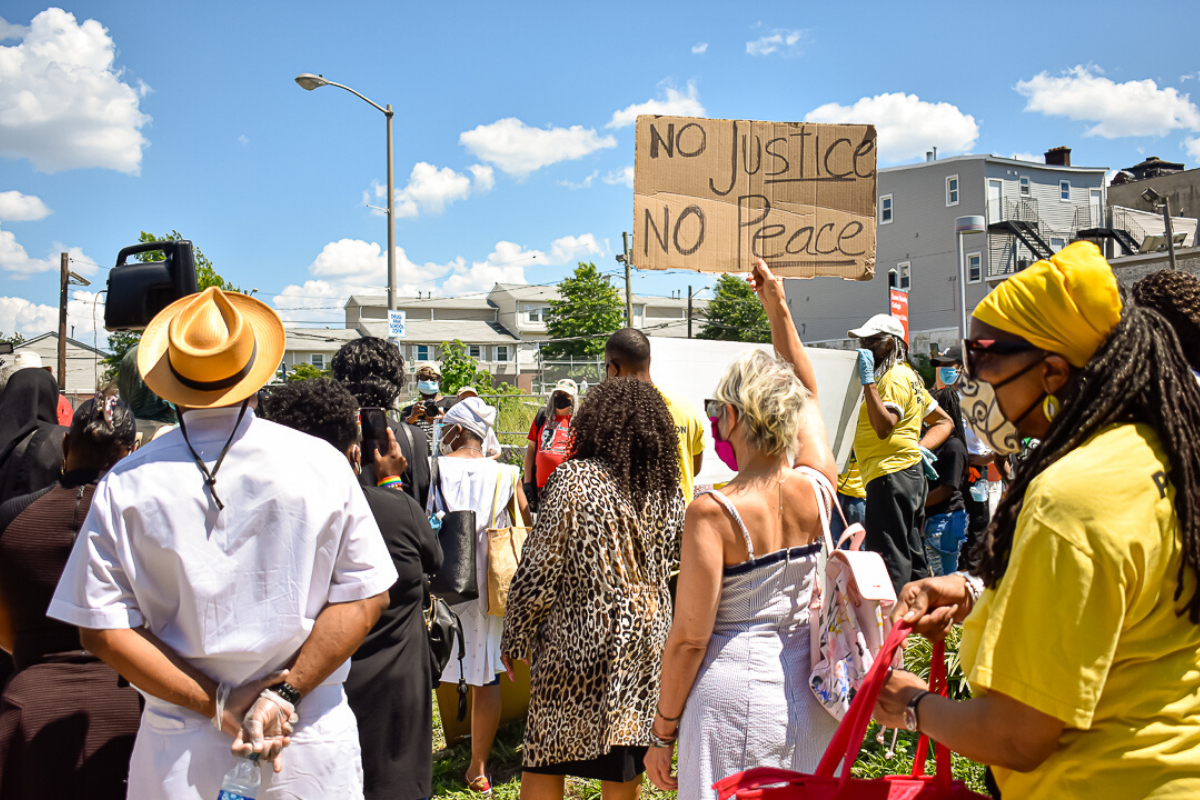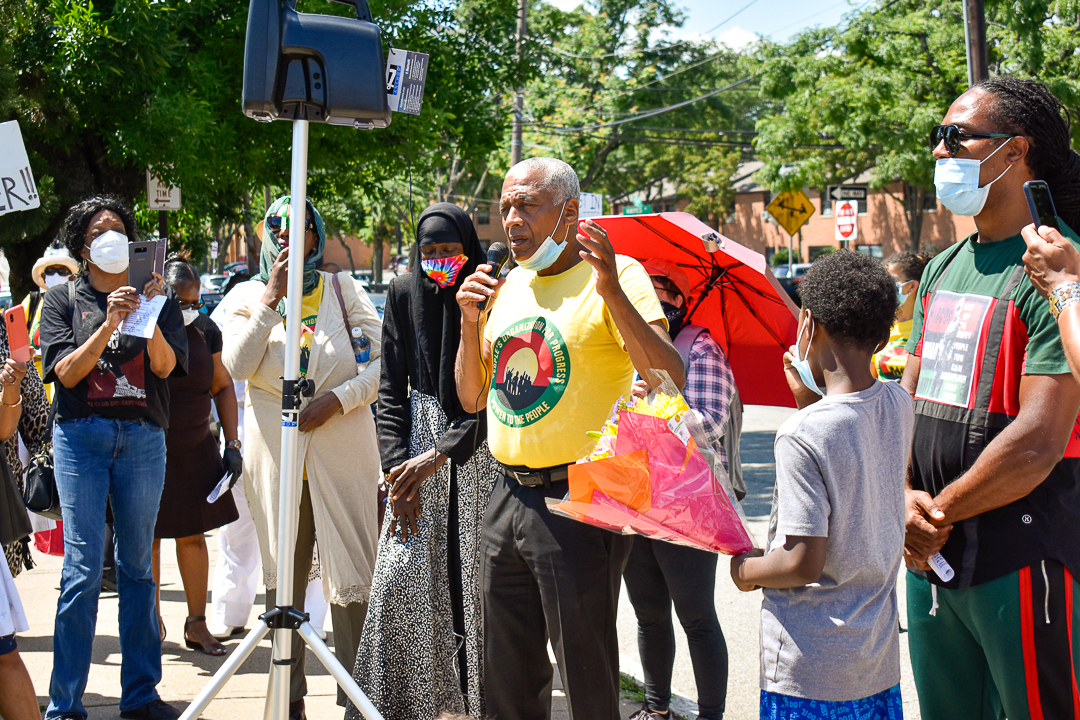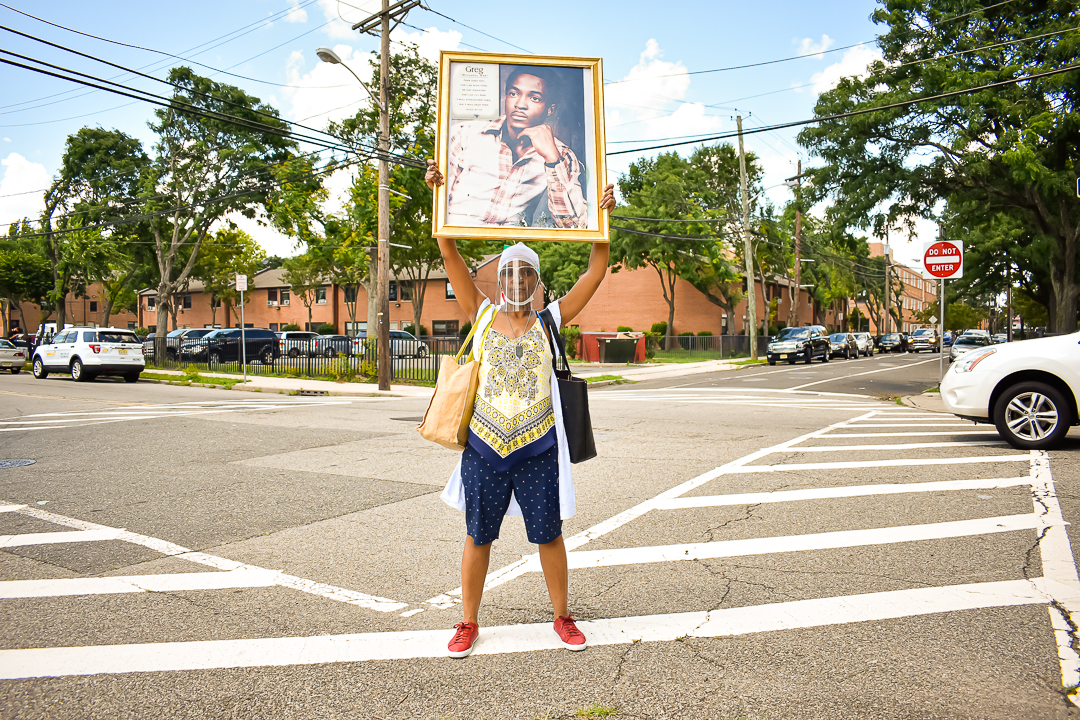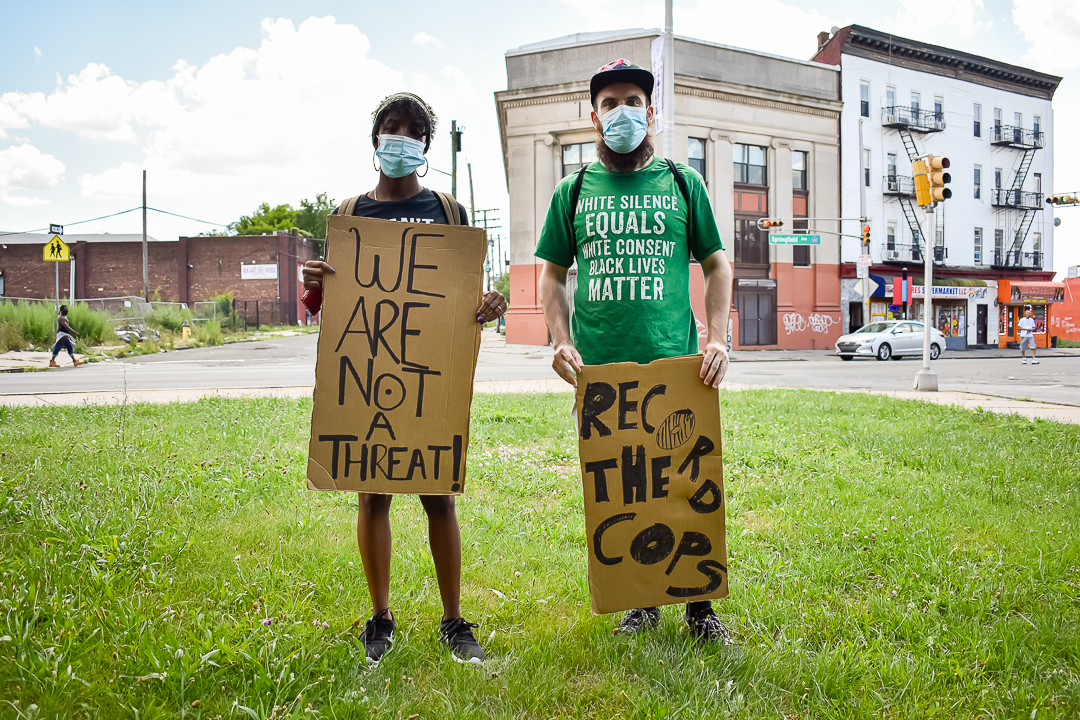

A crowd gathers for the 53rd anniversary of the Newark Rebellion, organized by the People’s Organization for Progress. (Diego Jesús Bartesaghi Mena/Latino Rebels)
NEWARK — On July 12, 1967, John Smith, an African American taxi driver for the Safety Cab Company was arrested by the Newark Police when he drove past a police car and double parked. Smith was wrongfully charged with “tailgating,” driving in the wrong direction on a one-way street, and for using foul language towards the officers. During his detainment, Smith suffered several injuries afflicted by the police.
Smith was Black, the police officers were white.
Word of mouth quickly spread, and by 11:00pm on that same day, a peaceful protest was organized in front of the 1st Police Precinct on 17th Avenue in the Central Ward.
Years of racial injustices, sub-par housing, lack of political representation, bank redlining, lack of educational opportunities, and police brutality, turned the peaceful protest violent when two Molotov grenades were thrown at the precinct.
The unrest soon spilled onto the city streets destroying windows, defacing shops, and subsequently looting. The five days of riots would leave 26 dead, hundreds injured, and cause more than $10 million in damages.
53 years later, the struggle against police brutality is still relevant today.
“It is important to learn this history and there are lessons to be drawn in 1967 that are relevant today,” said Lawrence Hamm, co-chairman of the People’s Organization for Progress, the organization that hosted the annual commemorative event on Sunday. “But the thing that most people would remember is that police brutality caused the rebellion in ’67, and it caused subsequent rebellion every decade since the 60s.”


Lawrence Hamm, co-chairman of People’s Organization for Progress, speaking at the memorial commemorating the 53rd anniversary of the Newark Rebellion. (Diego Jesús Bartesaghi Mena/Latino Rebels)
At the memorial commemorating the 26 lives that were lost, Albert Green (brother of Albert Mersier, Jr., who was killed during the unrest on July 14, 1967) said that this event was devastating for his family.
“My dad was a successful business man, but when my brother died, my dad couldn’t take it. He self-medicated, my sister was traumatized. We lost everything and we couldn’t recover. It was hard for us,” recalls Green.
Elsi Pilgrim, who is 87 years old and worked as a nurse during the unrest, remembered a pregnant woman was shot by the national guard when she was closing her window. Another bullet hit her 4-year-old daughter in the foot. After the mother’s death, her 11 children were placed in foster care.
“It was a horrible sight. I haven’t forgot it,” Pilgrim said. “I want the younger generation to know what happened and also to make their lives better. Because Black lives do matter.”
The event drew a small crowd. Most of the attendees were older citizens, but a few young people attended the event.


Tamika Darden-Thomas holds her father’s portrait at the memorial commemorating the 53rd anniversary fo the Newark Rebellion. (Diego Jesús Bartesaghi Mena/Latino Rebels)
Karima Williams, a Newark resident, came with her 17-year-old daughter Kamora Williams to the event. Williams said she wants her daughter to know her history and to not forget what happened on that day.
“We still going through the same thing, worse now that they are using funds and killing us at a rapid rate. We need to teach the younger generation what is happening so they can learn,” Williams said.
“This is who we are. This is what make us. This is part of our identity. If you lose your identity, you lose who you are as a Black person, and you don’t know what to fight for,” she added.
The event also drew support from people outside of Newark.
“If I see other citizens in this country that aren’t free, I have to use my power, my voice, and my allyship to be there and to help them rise up,” said Emma from Elmwood Park.


Rachel and Nathan Grisnerg holding signs at the memorial commemorating the 53rd anniversary of the Newark Rebellion. (Photo Credit: Diego Jesús Bartesaghi Mena/Latino Rebels)
Rachel and Nathan Grisnerg, members of the Black Lives Movement Morristown, also came to support the community.
“It is time to stop fighting each other and come together,” Grisnerg said.
The 1967 Newark Rebellion was one of the 159 race riots that swept the city during what is called the “Long Hot Summer of 1967.” After the unrest, Newark elected their first African American mayor in 1970, and helped shape the Black Power Movement, electing 10,000 Black representatives in 1972, compared to only 400 in 1966.
***
Diego Jesús Bartesaghi Mena is a 2020 Latino Rebels summer correspondent. A recent graduate of Columbia Journalism School, he is based in Newark, NJ and tweets from @bartesaghi_mena.


